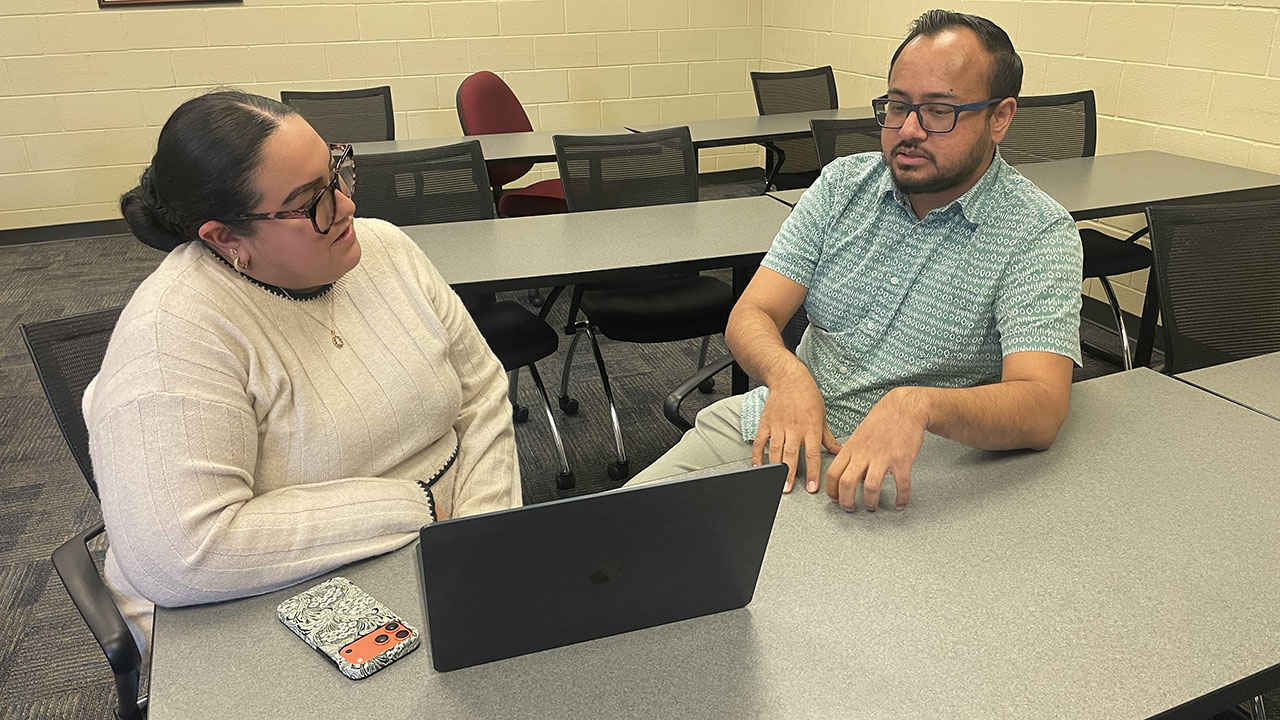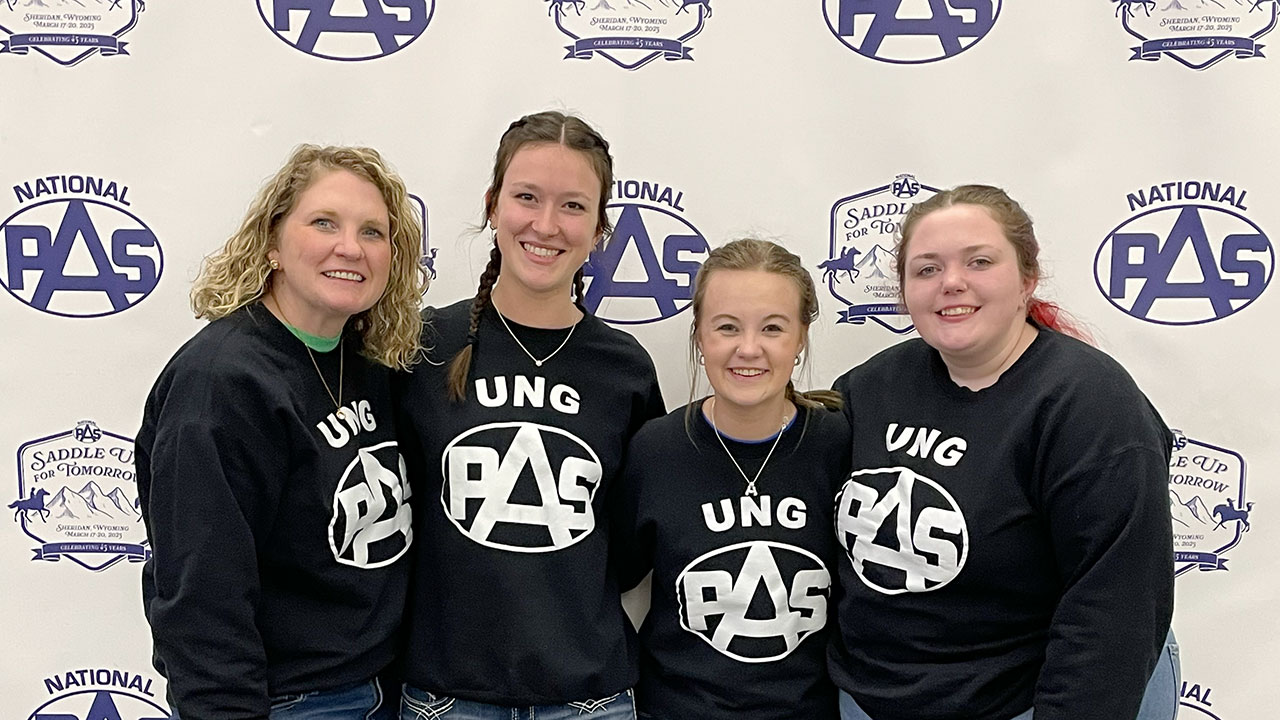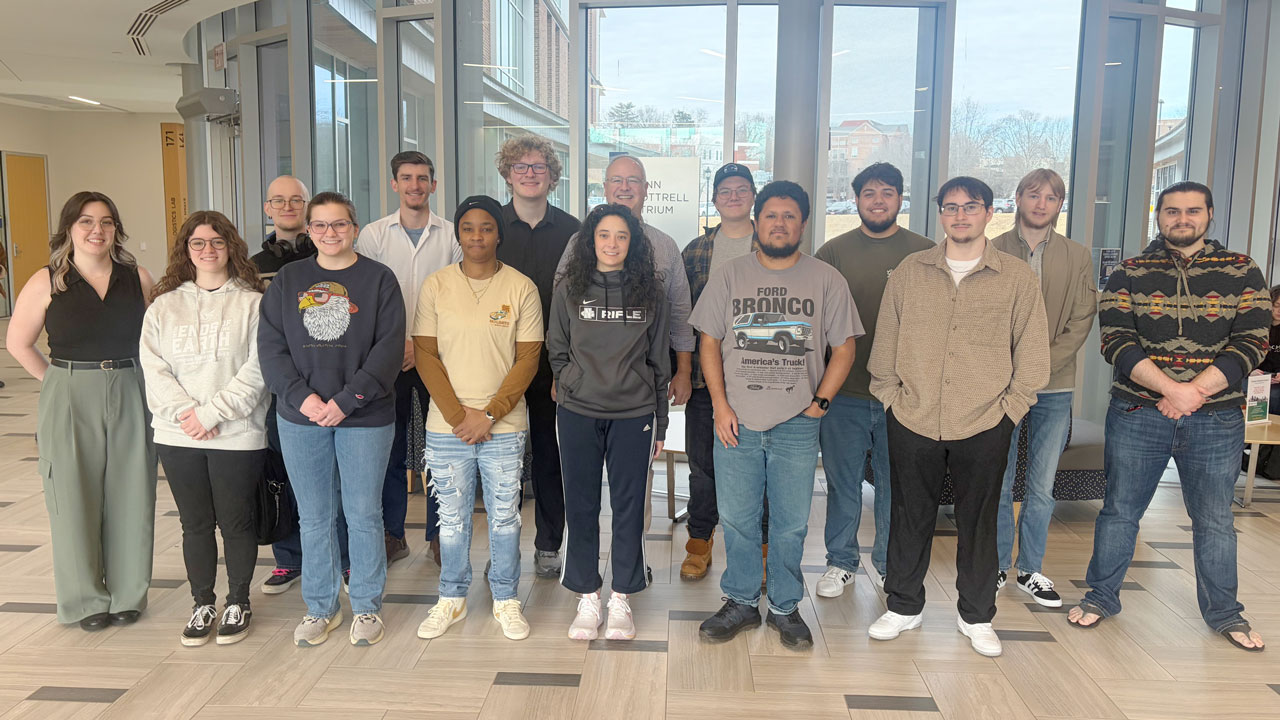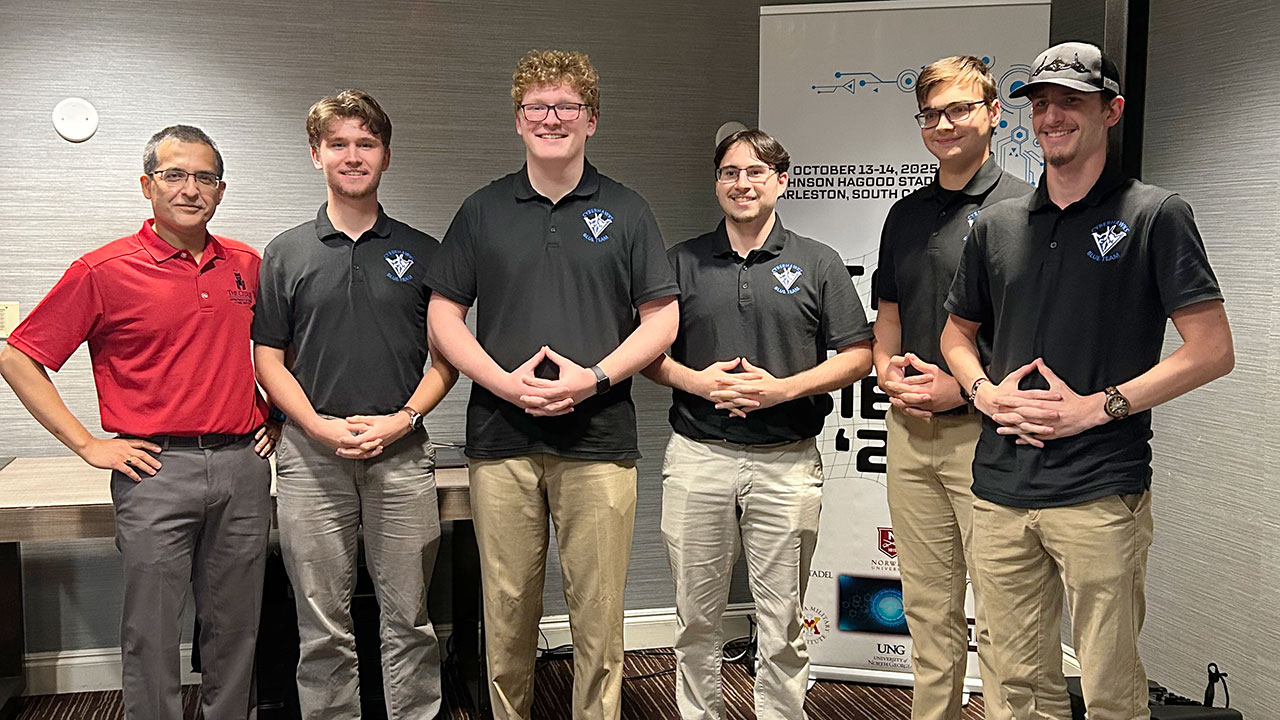Tomlinson gains third NSF grant for research

Dr. Aimée Tomlinson, professor of chemistry and biochemistry at the University of North Georgia, reached a trifecta this academic year. She received a National Science Foundation (NSF) grant for a third time with a little bonus.
"It's not a new grant, but it is more money," Tomlinson said. She earned two highly competitive grants in the past six years for her research on deep blue organic light emitting diodes (OLEDs). "I have a four-year grant instead of three years, and it overlaps with the current award I have that will end in 2022."
Tomlinson's research could assist in creating significantly higher screen resolution using carbon-based, also known as organic, materials. Using organic materials is less destructive to the environment, Tomlinson said, as well as much less expensive to mass produce which is a win-win overall.
The NFS grant totals $140,000 with $20,000 awarded in the fiscal year 2021-22 and $40,000 each for the following three years. It was a surprise, especially since more than 43,000 proposals were submitted and 11,500 were financed this time. Last year, the NSF funded some 12,000 projects out of more than 42,000 submissions.
"I didn't realize how uncommon that was for this year. I'm ecstatic and elated, Tomlinson said. "This grant allows me to provide opportunities for my students to get a level of research practice under their belt before they go to graduate school or enter the workforce."
Thanks to the previous grant, UNG student Evan Smith acquired the skills he would need in a doctoral program. The junior pursuing a chemistry degree used those techniques to co-author a paper under review for a journal.
"My role was to collect, analyze and organize the data for the paper in a digestible way," the 21-year-old from Cumming, Georgia, said. "Being part of this research helped me with my organization and how to look at a month of data and understand it."
Smith also learned to collaborate with fellow researchers at other higher education institutions. His time with Tomlinson, though, has been the most eye-opening experience.

"She is incredible, because she works like no one I've ever seen," Smith said. "It's incredible to see her do what I do and do it three times faster while she has other things going on."
He said Tomlinson deserves the NSF grant and more. Dr. John Leyba, dean of the College of Science & Mathematics, agreed.
"The reception of the third NSF grant by Dr. Tomlinson is a testament to her sound research methodology," he said. "Dr. Tomlinson's research team, which includes several past and current UNG students, continues to perform cutting-edge computational science, in spite of the current pandemic. Along with her long-time collaborator, Dr. Malika Jeffries-EL at Boston University, Dr. Tomlinson continues to move science forward."



